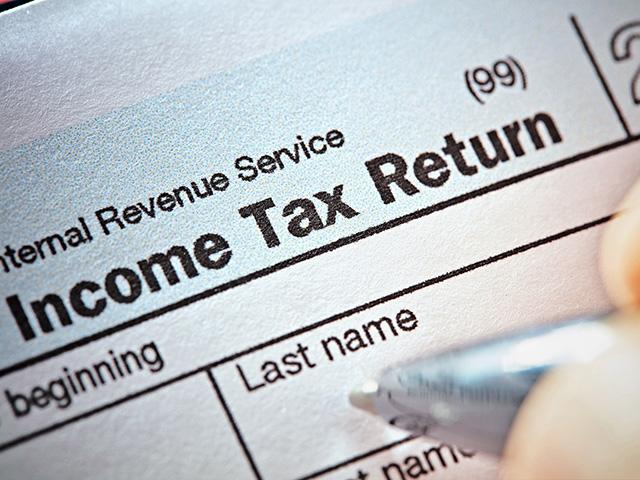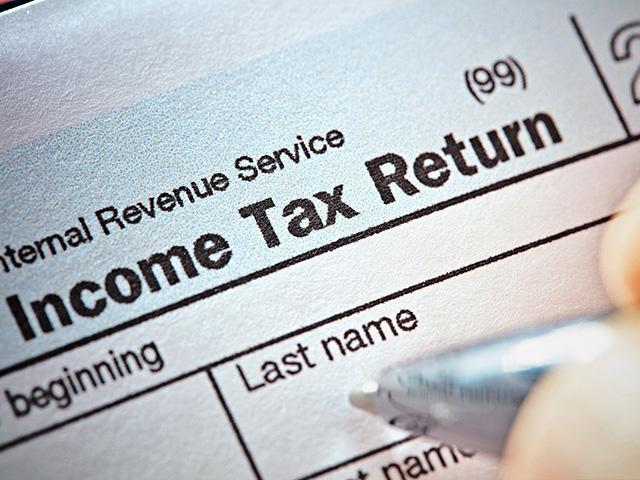Ag Policy Blog
Key Lawmakers Pitch Tax Package That Would Boost Bonus Depreciation, R&D Write-Offs
OMAHA (DTN) -- Farmers could see a greater opportunity to write off larger equipment purchases and buildings under a $78 billion bipartisan tax deal proposed Tuesday by the chairmen of the two major tax-writing committees in Congress.
House Ways and Means Committee Chairman Jason Smith, R-Mo., and Senate Finance Committee Chairman Ron Wyden, D-Ore., announced the deal Tuesday that provides a mix of business tax credits along with an expansion of the child tax credit.
It remains a major question whether Smith and Wyden can get the rest of Congress to rally around the tax package. The bill is dubbed the Tax Relief Act for American Families and Workers Act of 2024. The proposal faces a divided Congress that is still trying to complete its funding bills for fiscal year 2024, though Wyden indicated his goal is to try to get the package passed before the filing season begins Jan. 29 for the 2023 tax year, "and I'm going to pull out all of the stops to get that done," Wyden said.
Smith said of the package, "American families will benefit from this bipartisan agreement that provides greater tax relief, strengthens Main Street businesses, boosts our competitiveness with China, and creates jobs."
Farmers would get a boost from plans to allow 100% bonus depreciation for certain property, including 20-year buildings. Or farmers could opt for a slightly higher Section 179 deduction for 2024 equipment, which serves the same purpose.
Another tax credit that farmers have utilized in the past for Research and Development (R&D) also is tweaked in the package.
BUMP IN SECTION 179 LIMITS
Under IRS Code Section 179, farmers and other small businesses for the 2023 tax year could deduct $1.16 million in equipment purchases as long as their total equipment did not exceed a $2.89 million cap. The deduction drops for every dollar spent over that limit. For property put into service on Jan. 1, 2024, or after, the expensing option bumps up to $1.2 million and the cap is raised to $3.05 million.
The tax bill would increase the expense amount up to $1.29 million and raise the cap for qualifying property up to $3.22 million. Both amounts would increase based on inflation for taxable years after 2024.
P[L1] D[0x0] M[300x250] OOP[F] ADUNIT[] T[]
EXTENSION OF 100% BONUS DEPRECIATION
Under the plan, bonus depreciation would return to 100% for qualified property placed into service after Dec. 31, 2022, meaning it would be retroactive to the beginning of 2023.
The proposal would extend out 100% bonus depreciation for property put into service before Jan. 1, 2026.
Currently, bonus depreciation for the 2023 tax year is set at 80% and it fell to 60% for the 2024 tax year unless Congress moves ahead with an updated tax plan.
Bonus depreciation can be more attractive for farmers because it applies to buildings such as machine sheds that have a 20-year depreciation schedule. Those don't qualify for the Section 179 deduction.
HIGHER THRESHOLD FOR 1099 FORMS
Businesses that have a lot of independent contractors are required now to issue 1099 forms to people for payments of $600 or higher. The legislation would bump that up to $1,000 starting in 2024.
R&D TAX CREDIT
The bill would correct a problem from the 2017 tax law that started requiring companies in 2022 to spread out the Research and Development (R&D) tax credit over five years instead of taking the deduction in a single year. That provision ended up putting a lot of companies in a bind over tax liabilities that they thought would be deducted.
The R&D tax credit can apply to a variety of ways on farm operations when they are testing new software, planting or irrigation techniques or conservation strategies. Even converting to no-till, planting cover crops or applying new crop-disease products can qualify for the R&D credit.
CHILD TAX CREDIT
The bill broadens the maximum refundable credit amount, raising it from $1,600 per child to $1,800 per child for 2023; $1,900 for 2024; and $2,000 for 2025. Another provision for 2024 and 2025 allows taxpayers to use a prior year's taxable income to calculate the maximum credit if for some reason they made less money in the current year.
Wyden indicated the changes to the Child Tax Credit would help as many as 15 million children from lower-income families.
OTHER PROVISIONS
The bill includes certain tax relief for companies operating in Taiwan. The Low-Income Housing Tax Credit is improved, which could lead to as many as 200,000 more affordable housing units being built as well. Another provision would provide better tax treatment for disaster-related losses of personal property. Part of that also excludes income for taxpayers who received certain government payments tied to wildfire losses. The lawmakers also cited the need to reduce waste and fraud by eliminating a pandemic tax credit, the Employee Retention Tax Credit program.
Also see, "A Few IRS Tax Changes in 2024," https://www.dtnpf.com/…
Chris Clayton can be reached at Chris.Clayton@dtn.com
Follow him on X, formerly known as Twitter, @ChrisClaytonDTN
(c) Copyright 2024 DTN, LLC. All rights reserved.






Comments
To comment, please Log In or Join our Community .